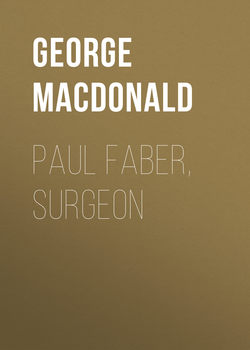Читать книгу Paul Faber, Surgeon - George MacDonald - Страница 5
CHAPTER IV
ОглавлениеTHE RECTORY
The curate had been in the study all the morning. Three times had his wife softly turned the handle of his door, but finding it locked, had re-turned the handle yet more softly, and departed noiselessly. Next time she knocked—and he came to her pale-eyed, but his face almost luminous, and a smile hovering about his lips: she knew then that either a battle had been fought amongst the hills, and he had won, or a thought-storm had been raging, through which at length had descended the meek-eyed Peace. She looked in his face for a moment with silent reverence, then offered her lips, took him by the hand, and, without a word, led him down the stair to their mid-day meal. When that was over, she made him lie down, and taking a novel, read him asleep. She woke him to an early tea—not, however, after it, to return to his study: in the drawing-room, beside his wife, he always got the germ of his discourse—his germon, he called it—ready for its growth in the pulpit. Now he lay on the couch, now rose and stood, now walked about the room, now threw himself again on the couch; while, all the time his wife played softly on her piano, extemporizing and interweaving, with an invention, taste, and expression, of which before her marriage she had been quite incapable.
The text in his mind was, "Ye can not serve God and Mammon." But not once did he speak to his wife about it. He did not even tell her what his text was. Long ago he had given her to understand that he could not part with her as one of his congregation—could not therefore take her into his sermon before he met her in her hearing phase in church, with the rows of pews and faces betwixt him and her, making her once more one of his flock, the same into whose heart he had so often agonized to pour the words of rousing, of strength, of consolation.
On the Saturday, except his wife saw good reason, she would let no one trouble him, and almost the sole reason she counted good was trouble: if a person was troubled, then he might trouble. His friends knew this, and seldom came near him on a Saturday. But that evening, Mr. Drew, the draper, who, although a dissenter, was one of the curate's warmest friends, called late, when, he thought in his way of looking at sermons, that for the morrow must be now finished, and laid aside like a parcel for delivery the next morning. Helen went to him. He told her the rector was in the town, had called upon not a few of his parishioners, and doubtless was going to church in the morning.
"Thank you, Mr. Drew. I perfectly understand your kindness," said Mrs.
Wingfold, "but I shall not tell my husband to-night."
"Excuse the liberty, ma'am, but—but—do you think it well for a wife to hide things from her husband?"
Helen laughed merrily.
"Assuredly not, as a rule," she replied. "But suppose I knew he would be vexed with me if I told him some particular thing? Suppose I know now that, when I do tell him on Monday, he will say to me, 'Thank you, wife. I am glad you kept that from me till I had done my work,'—what then?"
"All right then," answered the draper.
You see, Mr. Drew, we think married people should be so sure of each other that each should not only be content, but should prefer not to know what the other thinks it better not to tell. If my husband overheard any one calling me names, I don't think he would tell me. He knows, as well as I do, that I am not yet good enough to behave better to any one for knowing she hates and reviles me. It would be but to propagate the evil, and for my part too, I would rather not be told."
"I quite understand you, ma'am," answered the draper.
"I know you do," returned Helen, with emphasis.
Mr. Drew blushed to the top of his white forehead, while the lower part of his face, which in its forms was insignificant, blossomed into a smile as radiant as that of an infant. He knew Mrs. Wingfold was aware of the fact, known only to two or three beside in the town, that the lady, who for the last few months had been lodging in his house, was his own wife, who had forsaken him twenty years before. The man who during that time had passed for her husband, had been otherwise dishonest as well, and had fled the country; she and her daughter, brought to absolute want, were received into his house by her forsaken husband; there they occupied the same chamber, the mother ordered every thing, and the daughter did not know that she paid for nothing. If the ways of transgressors are hard, those of a righteous man are not always easy. When Mr. Drew would now and then stop suddenly in the street, take off his hat and wipe his forehead, little people thought the round smiling face had such a secret behind it. Had they surmised a skeleton in his house, they would as little have suspected it masked in the handsome, well-dressed woman of little over forty, who, with her pretty daughter so tossy and airy, occupied his first floor, and was supposed to pay him handsomely for it.
The curate slept soundly, and woke in the morning eager to utter what he had.
